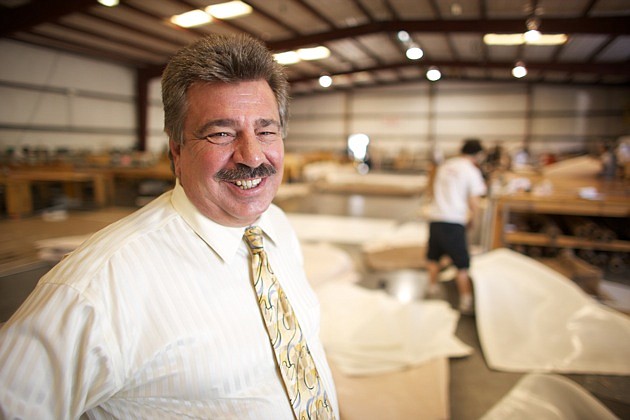- November 26, 2024
-
-
Loading

Loading

Brian Rist spent 16 years toiling to build his hurricane-protection company into one of the Gulf Coast's biggest 500 companies by revenues.
But Storm Smart Building Systems, with its distinctive hurricane logo, will soon give way to Smart Companies, focusing on selling energy-saving devices such as solar-powered water heaters in addition to hurricane shutters and other storm-protection products.
Rebranding in an economic downturn is a risky business. Customers might get confused, employees could lose focus and the effort could prove too costly.
Rist, the company's founder, president and CEO, acknowledges that he's taking a risk by broadening his focus. After all, Smart Companies doesn't immediately say what the company does the same way Storm Smart does.
But Rist explains it this way: “You can't have a company this size and depend on something we can't control.” The hurricane business is volatile — great in storm years, slow in quiet years — and he's hoping the energy conservation efforts will smooth out the peaks and valleys.
That became evident when the economic downturn hit and hurricanes stayed away from Florida for five years, putting many hurricane-shutter companies out of business. Rist says it's unlikely his company would have survived if he hadn't had the foresight to expand to untested markets in Latin American and the Caribbean, landing big hotel and condo projects to keep his 100 employees busy. International business now accounts for 20% of sales.
With the lingering effects of the downturn, however, Rist believes that high energy prices will push homeowners to spend money on devices that will lower their power bills. What's more, many of the products he sells, such as hurricane windows, also double as energy savers. In addition, he'll sell devices such as solar-powered water heaters. “We feel like over the long term it's going to pay off because the energy crisis isn't going away anytime soon,” he says.
Rist expects the rebranding effort will help Smart Companies grow revenues at a 13% to 15% annual clip and hire another 25 people within a year. Revenues dipped 5% in 2010 to $10.9 million compared with the previous year. Rist won't say how much the rebranding effort has cost but he says it's in the six figures “and we're just starting.” He's hired Fort Myers marketing firm Spiro & Associates to help him.
Timing might benefit Rist, as the economy begins to recover slowly. “We had our best March since 2005,” he says.
Rist has a vast clientele to mine since he started the business 16 years ago. Storm Smart has installed hurricane protection products in 50,000 homes from Sarasota to Marco Island with a 97% satisfaction rate, he says. “Remarkably, there is a segment that still has some money left to spend,” he notes. “They already trust us.”
But customers today will only pay for energy-saving devices if the payoff is clear. “Our products aren't sold on emotion,” Rist says. “They're bought on research.” That's why Rist says his company spends $10,000 a month to maintain a presence on the Web and employs a full-time person to update the website, blog, tweet and post on Facebook.
And Rist is well aware of the fact that many alternative-energy companies failed because government subsidies created artificial demand. To persuade customers to spend money on energy-efficient products, Rist has created software that will show homeowners how much they save on power bills over time. “I don't think you can build a business that depends on government subsidies,” he says.